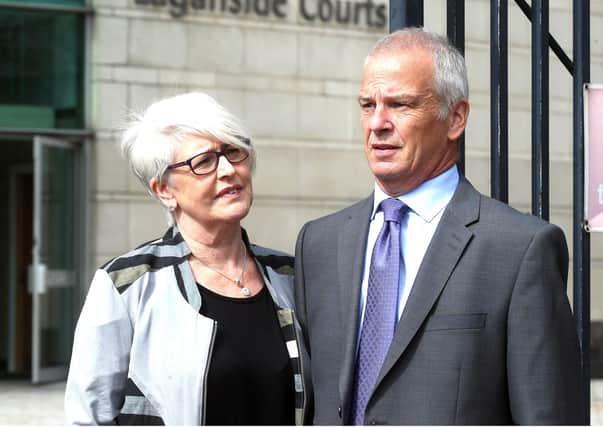Professor Ian Young probe must reveal truth, says father of tragic hyponatraemia girl


Alan Roberts was speaking to the News Letter after Prof Young failed in a High Court bid to block an investigation into allegations he had given “misleading” evidence to an inquest into the death of nine-year-old Claire Roberts.
Mr Roberts’ daughter died from a condition known as hyponatraemia in the Royal Hospital for Sick Children in 1996, and her death was one of several examined by a public inquiry.
Advertisement
Hide AdAdvertisement
Hide AdThe inquiry found that Prof Young – before he had taken on the role of chief scientific advisor – had failed to inform her parents about failings in her care and gave “misleading” evidence to an inquest into her death.
In a January 2018 report, inquiry chairman Mr Justice O’Hara also said Prof Young had “shifted from his initial independent role … to one of protecting the hospital and its doctors”.
A new inquest, which was ordered following the inquiry, concluded in June 2019 that Claire’s death “was caused by the treatment that she received in hospital”.
Prof Young referred himself to the GMC shortly after the inquiry’s report was published and the regulator initially decided not to waive its usual five-year time limit for fitness to practise proceedings.
Advertisement
Hide AdAdvertisement
Hide AdBut, in January 2020, the GMC decided it was “in the public interest” for the allegations against Prof Young to proceed to an investigation and that the original decision not to investigate was “materially flawed”.
At a High Court hearing in January, Prof Young argued that the original decision was “lawful and rational” and the reversal of that decision was “inconsistent and unreasonable”.
After the judgment was handed down, Mr Roberts told the News Letter: “We are grateful to Mr Justice Holgate in reaching a judgment that the GMC, in the public interest, can now proceed with an investigation into very serious allegations against Professor Young.
“Where a doctor is to be investigated for allegations of misconduct and when serious questions are raised about a doctor’s probity, no obstacles of delay should be placed in the way of the GMC.”
Advertisement
Hide AdAdvertisement
Hide AdHe continued: “The allegations against Professor Young are extremely serious and raise issues which go to the heart of public confidence in our health service and the medical profession.
“Questions must also be asked as to how the Belfast Trust have already carried out an internal review of the allegations against Professor Young, and a decision reached that no formal investigation is required or any action needed.
“The truth must not be hidden and all those responsible for attempting to conceal the truth will be exposed.”
Mr Justice Holgate, meanwhile, said in his summary judgment: “It is not the court’s role in these proceedings to express any conclusions about the merits of (the allegations).”
Advertisement
Hide AdAdvertisement
Hide AdMeanwhile, Prof Young’s position as chief scientific advisor is “untenable”, TUV MLA Jim Allister has said.
Mr Allister, in a tweet following this morning’s ruling, said: “The High Court dismissal of our chief scientific officer’s attempt to stop professional investigative proceedings, arising out of the O’Hara Report findings, surely, makes his position untenable and that of a department that has shielded him.”
In a statement, Prof Young’s legal representative said he was “disappointed” with the decision.
“Professor Young continues to acknowledge the ongoing suffering of Mr and Mrs Roberts and their family in relation to Claire’s death in 1996 and subsequent events.
“He has apologised previously if any of his actions have inadvertently contributed to their distress, and would like to do so again.”